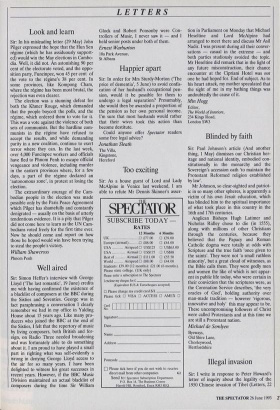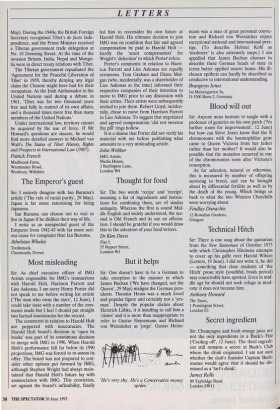Illegal invasion
Sir: I write in response to Peter Howard's letter of inquiry about the legality of the 1950 Chinese invasion of Tibet (Letters, 22 May). During the 1940s, the British Foreign Secretary recognised Tibet's de facto inde- pendence, and the Prime Minister received a Tibetan government trade delegation at No. 10 Downing Street. At the time of the invasion Britain, India, Nepal and Mongo- lia were in direct treaty relations with Tibet.
The Tibetan government repudiated the `Agreement for the Peaceful Liberation of Tibet' in 1959, thereby denying any legal claim the Chinese might have had for their occupation. As the Irish Ambassador to the United Nations said during a debate in 1961, 'Tibet was for two thousand years free and fully in control of its own affairs, and a thousand times more free than many members of the United Nations.'
Under international law, territory cannot be acquired by the use of force. If Mr Howard's questions are sincere, he would find more detailed answers in Michael van Walt's The Status of Tibet: History, Rights and Prospects in International Law (1987).
Patrick French
Madbrook Farm, Warminster Road, Westbury, Wiltshire



























































 Previous page
Previous page